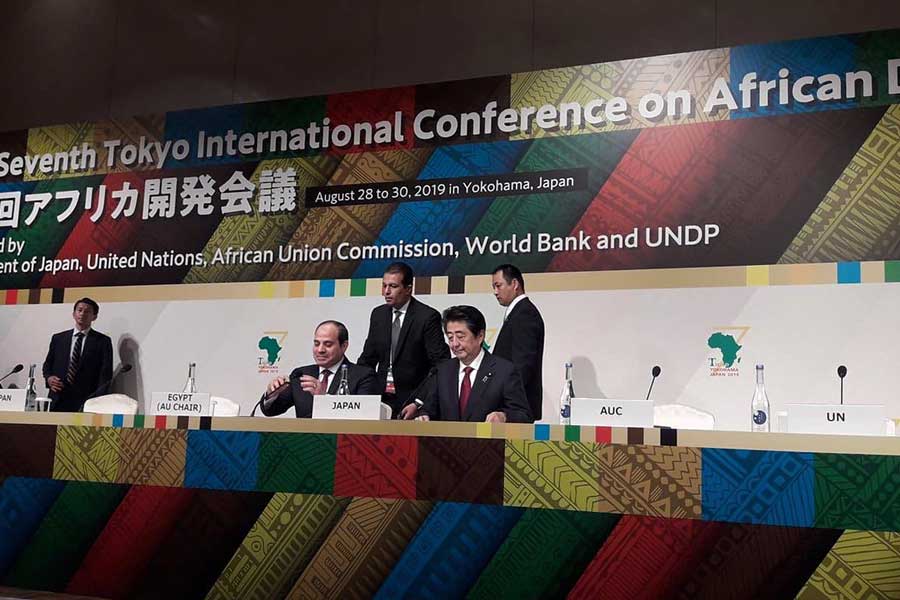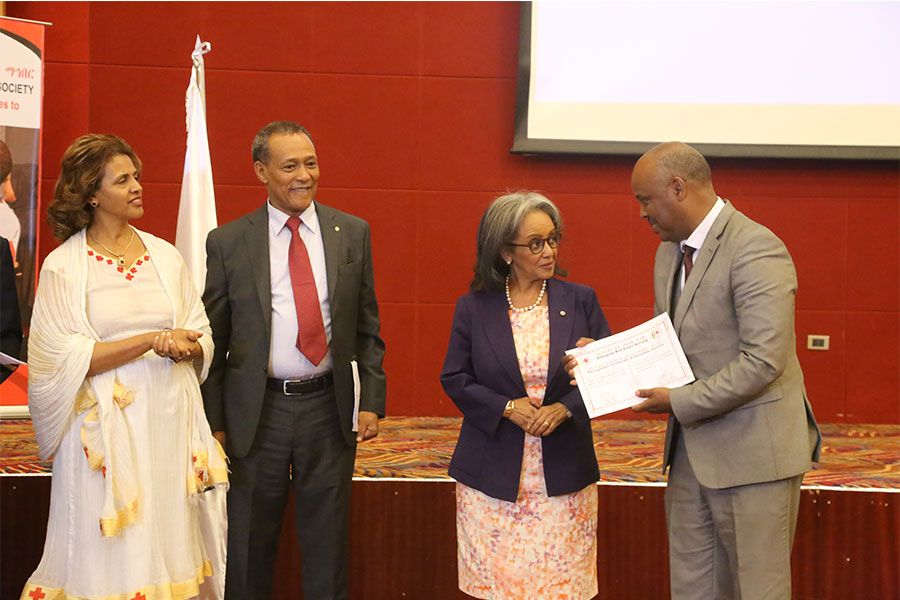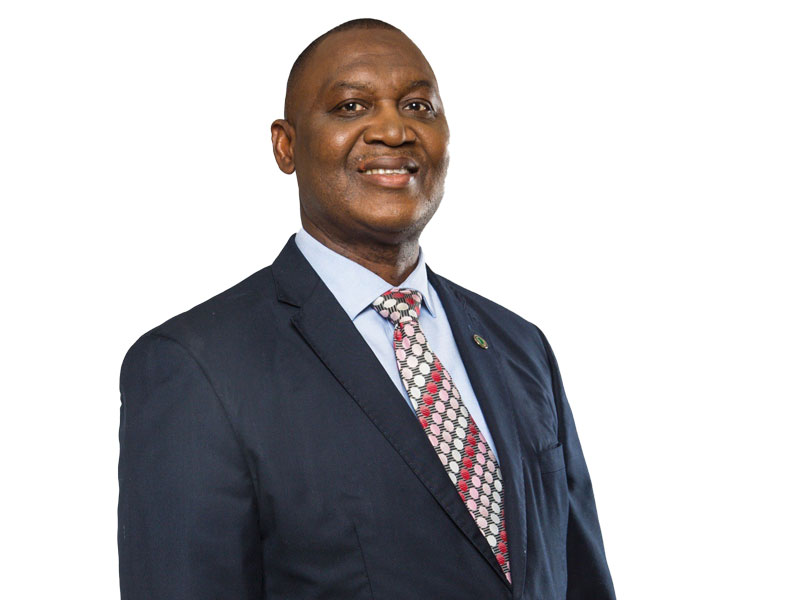
Featured | Aug 31,2019
Mar 16 , 2019
By Ben Roberts
The new route being established between Cape Town and Cairo will give Africa a boost on interconnectivity it has never achieved before, writes Ben Roberts (ben.roberts@liquidtelecom.com), group chief technical and innovation officer at Liquid Telecom.
When mobile phones took off rapidly and more widely in Africa than elsewhere, the continent leapt ahead of the Western world in mobile adoption. This was driven by its sparse and costly landline infrastructure.
As smartphones have followed a similar trajectory in Africa, the internet has been held back by the same infrastructure constraints that haunted the continent’s landlines. That is until a new internet superhighway from Cape Town to Cairo was recently announced by Liquid Telecom, representing a turning point in African connectivity.
Until now, internet cables have followed the route of Africa’s roads, railways and ports, placing it into an immediate infrastructure bunker, since Africa has so far failed to achieve the north-south or east-west transportation routes that characterises every other continent in the world.
Traveling from Cape Town to Cairo takes eight days and 16 hours, according to Google, with visions of transcontinental rail routes remaining a dream for more than a century. Even air connections have lagged. Not too long ago Africans traveling east to west on the continent had to fly via Europe to reach the other side of their own land mass.
Africa’s internet ecosystem enjoyed a steep change when undersea cables landed in the region, opening up new connectivity from southern Europe to augment satellite bandwidth that had until then been Africa’s sole access.
From port-based entry points the undersea cable stretch from Europe various ports in Africa. Only a few direct connections existed between countries across the continent.
That map has changed significantly over the last five years. Africa now has a large internet superhighway running from Kenya to South Africa and is continuing to widen and deepen its internet infrastructure. Both public and private organisations, among them Liquid Telecom, continue to invest millions of dollars in laying connection cables.
New networks have driven down internet costs radically in the past three years. In mid-2014, South Africa was home to some of the most expensive internet connectivity in the world, where it cost over a quarter of a million dollars for a 10Gbps wavelength from Johannesburg to London - compared to less than 25,000 dollars from London to New York, or Los Angeles to Tokyo, according to TeleGeography.
By last year, the same 10Gbps wavelength from Johannesburg to London cost less than 40,000 dollars, a more than 80pc drop.
However, network speeds have only improved marginally in that time because many of the subsea routes still transit via the UK.
While cross-border connections have been built within Africa, most remain without access to landing stations and are confined to individual commercial contracts.
But a new route is being established between Cape Town and Cairo that for the first time goes beyond any reach that has so far been achieved in Africa.
The launch follows the signing of an MoU in July 2018 between Liquid Telecom and Telecom Egypt that enables Liquid Telecom to complete a terrestrial fiber optic cable network stretching 60,000Km from South Africa to Cairo.
The new infrastructure signals a new era for the continent’s internet, providing a comprehensive terrestrial network that ensures far less African data to be routed undersea to Europe and back to Africa, significantly improving internet speeds.
The laws of physics provide a sum of 9mls to move a data packet from Cape Town to Cairo by the shortest land-based path on Africa’s internet trunk routes, compared with the 209mls it has been taking on the much longer path through London and Southern Europe.
With cross-border internet routes made operational, data that today takes 29mls through the UK will move in just 38mls from Mombasa to Kinshasa. Data from Djibouti to Douala will move four times faster, and from Cape Town to Casablanca, nearly twice as quickly. And where physical links have defied the spend and reach of governments continent-wide, the internet industry hand-in-hand with governments will have made Africa into a unified data zone, moving its own data on its own infrastructure.
This is why the completion of a Cape-Cairo route is something the whole internet industry should be celebrating. And why Africa just took an infrastructure leap that it has never managed before.
And nor has the need ever been greater - with the region signing a monumental trade agreement to promote pan-African trade and business. The continent is finally becoming more connected, bringing with it improved internal communications, trade and business that will change the future.
PUBLISHED ON
Mar 16,2019 [ VOL
19 , NO
985]


Featured | Aug 31,2019

Viewpoints | Dec 04,2022

Radar | Dec 19,2018

Commentaries | May 03,2025

Covid-19 | Apr 04,2020

Exclusive Interviews | Feb 12,2022

Viewpoints | Jul 27,2019

Advertorials | Oct 10,2019

Exclusive Interviews | Dec 11,2021

Radar | Apr 19,2025

My Opinion | 131548 Views | Aug 14,2021

My Opinion | 127903 Views | Aug 21,2021

My Opinion | 125879 Views | Sep 10,2021

My Opinion | 123510 Views | Aug 07,2021

Dec 22 , 2024 . By TIZITA SHEWAFERAW
Charged with transforming colossal state-owned enterprises into modern and competitiv...

Aug 18 , 2024 . By AKSAH ITALO
Although predictable Yonas Zerihun's job in the ride-hailing service is not immune to...

Jul 28 , 2024 . By TIZITA SHEWAFERAW
Unhabitual, perhaps too many, Samuel Gebreyohannes, 38, used to occasionally enjoy a couple of beers at breakfast. However, he recently swit...

Jul 13 , 2024 . By AKSAH ITALO
Investors who rely on tractors, trucks, and field vehicles for commuting, transporting commodities, and f...

Jun 28 , 2025
Meseret Damtie, the assertive auditor general, has never been shy about naming names...

Jun 21 , 2025
A well-worn adage says, “Budget is not destiny, but it is direction.” Examining t...

Jun 14 , 2025
Yet again, the Horn of Africa is bracing for trouble. A region already frayed by wars...

Jun 7 , 2025
Few promises shine brighter in Addis Abeba than the pledge of a roof for every family...

Jun 29 , 2025
Addis Abeba's first rains have coincided with a sweeping rise in private school tuition, prompting the city's education...

Jun 29 , 2025 . By BEZAWIT HULUAGER
Central Bank Governor Mamo Mihretu claimed a bold reconfiguration of monetary policy...

Jun 29 , 2025 . By BEZAWIT HULUAGER
The federal government is betting on a sweeping overhaul of the driver licensing regi...

Jun 29 , 2025 . By NAHOM AYELE
Gadaa Bank has listed 1.2 million shares on the Ethiopian Securities Exchange (ESX),...